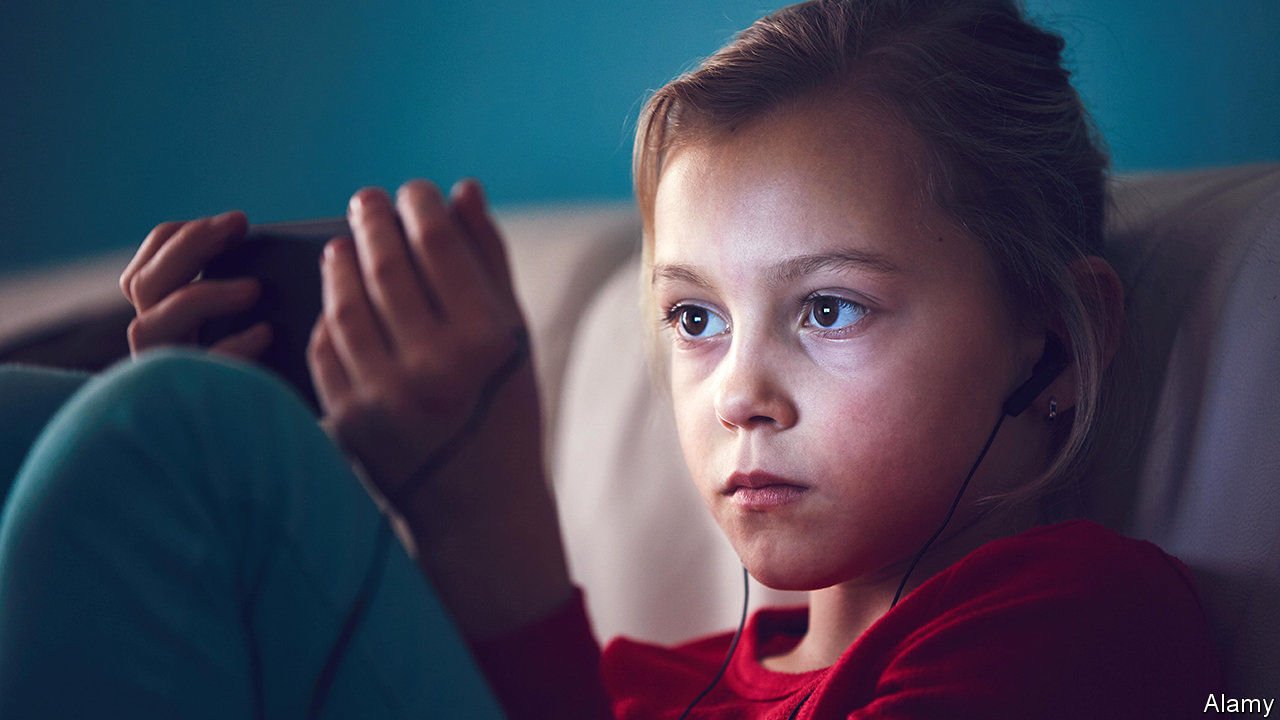

FEW PARENTS, confronted with grumpy toddlers or bored ten-year-olds, are strong-minded enough to resist the peace that comes from sticking their darlings in front of a tablet or a smartphone. But the relief is tinged with guilt. One minute toddlers can be watching Peppa Pig, and the next learning that the Moon landings were faked or that Earth is flat. YouTube and Netflix are designed to keep their audience hooked in ways that are creepy when used on adults; but when they involve children they are downright disturbing. Data are being collected from individuals too young to dress themselves, let alone consent to the myriad of uses to which the data are put.
The problem is not new. Rules have long governed children’s exposure to older forms of media—think of watersheds in television schedules, age-ratings in cinemas or restrictions on buying pornography. Yet for many years, both governments and tech firms have treated the web as a domain where those rules are so laxly enforced that they hardly apply at all. The industry hides behind the skimpiest of figleaves. Facebook’s terms of service forbid those under 13 from signing up, as do those of WhatsApp, a messaging service that Facebook owns. Both provisions are blithely ignored by millions.
[“source=economist”]





